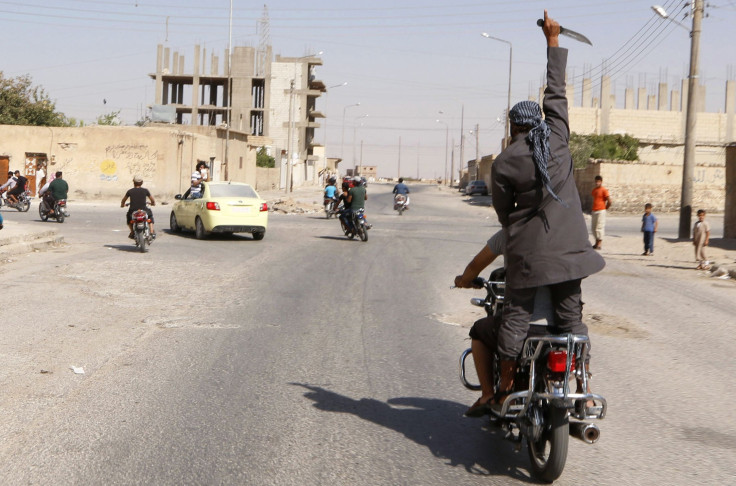Islamic State: How The US Treasury Hopes To Fight Back

WASHINGTON, DC -- When most people think of fighting terrorist groups such as the Islamic State, they think of covert operations, air raids and military strategy, but the U.S. government has also been fighting the battle on another front — finance.
The U.S. Treasury has long been involved with anti-terror efforts, many times in conjunction with the Department of Defense. But fighting the Islamic State, now known for being the richest terrorist organization in the world, has presented a host of new challenges.
“Today we face another terrorist enemy for which a half a million dollars appears to be pocket change,” said Jeb Hensarling, R-Texas, Chairman of the House Financial Services Committee, at a hearing on Thursday to discuss efforts against the Islamic State.
Experts say the Islamic State has more than $2 billion in assets, coming not from external donors, but from its own revenue streams. The organization’s wealth makes it especially dangerous. To compare, the Sept. 11th attacks cost Al Qaeda an estimated $500,000.
“Fighting a financial war against terror will require constant innovation and improvement. The tools we’ve used in the past may not be suitable for the future,” Hensarling said.
Other terrorist organizations like Al Qaeda, Al-Shabaab and Hezbollah depend heavily on external donors and state-backed sponsors to fund activities. The Islamic State, on the other hand, is making millions of dollars every week from a combination of illegal oil sales, extortion, kidnapping and other ventures. The group’s independence makes its finances difficult to track down.
“Our efforts to combat its financing will take time,” said David Cohen, who is leading the financial fight against the Islamic State as the Treasury’s undersecretary for terrorism and financial intelligence. “We have no silver bullet, no secret weapon.”
At the Thursday hearing, lawmakers expressed concern that the U.S. government isn’t doing enough to fight the Islamic State, and dismay that the group’s advance was such a surprise.
“It is inconceivable that we have what we think is one of the best intelligence agencies in the world, that ISIS could have developed this far with sophisticated operations for selling oil… without us knowing what they were doing,” said Rep. Maxine Waters, D-Calif.
At a later meeting, experts outlined exactly how the trade networks used by the Islamic State developed in the region for years, and in some cases centuries, before the group took on its new name and mission.
The informal money transfer system known as hawala, for example, is widely used by the Islamic State to send funds to and from its members. But the networks used are typically drawn along family lines and have existed for generations. Illegal oil-smuggling networks through Turkey and Syria also existed for years before anyone heard of the name ISIS.
Going forward, the Treasury will continue its research operations and do more to partner with governments in the region to learn more about who is sending money, and how. Meanwhile, experts say that the very thing that makes the Islamic State unique also makes it vulnerable.
For instance, the group is known to pay its members roughly $1,000 every month in wages and is taking on more and more infrastructure and limited social obligations in the territory it controls. To compare, the Iraqi government had budgeted about $2 billion for this year to provide similar services in the region controlled by the Islamic State.
Policymakers agreed that going forward, in addition to the airstrikes and intelligence efforts, the U.S. government needs to continue cooperating with local authorities to help control money going to and from the Islamic State.
© Copyright IBTimes 2024. All rights reserved.






















